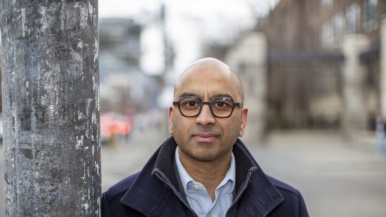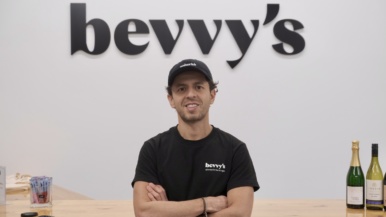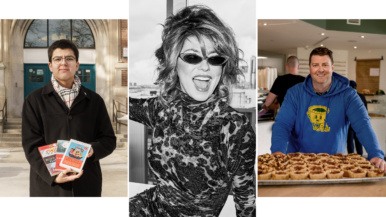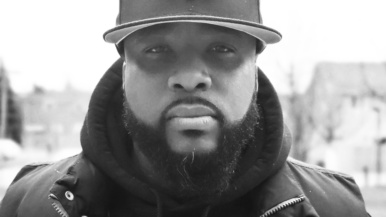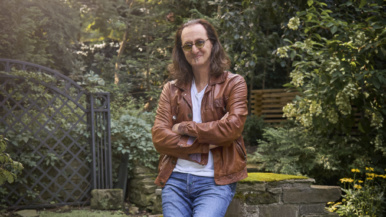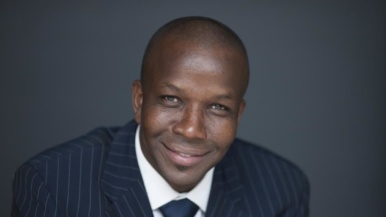Q&A: Hank Idsinga on the pressure of leading the highest-profile serial killer case since Bernardo
As the lead officer on Project Prism—the investigation into the disappearance of several men from the Gay Village—you announced in December that there was no evidence to suggest a serial killer. Was that true?
Yes.
Yet two months earlier you’d seized Bruce McArthur’s van from an auto wrecker, suggesting he was very much on your radar. Many, especially some in the LGBT community, interpreted that as lying. How do you respond?
It’s not as if I didn’t suspect a serial killer. But it would be reckless for me to announce without evidence, “Hey, we’ve had five murders. Maybe it’s a serial killer!” That would incite panic, and there are potential legal implications, too.
The case has made international headlines and captivated everyone’s attention here at home. What have these past few months been like for you?
Busy. A lot of all-nighters. There’s been a lot of media attention, but I know it’s fleeting. My partner and I were leaving our breakfast spot on College Street the other morning, and a lady came up to thank us. Not 15 seconds later, two guys stopped us. They were friends of one of the victims and wanted to say thanks. In 13 years working homicide, I’ve never once been recognized like that.
It helps that you’re what, six foot four?
Just under six foot six. I tend to stand out.
So does your surname. Is it Dutch?
Yes. It’s more common in the Netherlands. My father, Ids Idsinga, came to Canada in the ’50s. He worked in the mines and with CN Rail before moving to Toronto and opening a deli.
Were you always a Hank? Ever a Henry?
It’s Hank on my birth certificate, so Henry’s not even an option, unless you’re my Grade 7 French teacher, who insisted on calling me Henri, which drove me absolutely nuts.
When did you decide to become a cop?
I worked at a gas station as a young man, and one day there was a car accident in front of the station. The drivers pulled in and started arguing. Eventually, this cruiser shows up, and the officer gets out, puts on his hat, looking all sharp, and instantly everybody stops. I’m like, Yeah, I want to do that.
We know that McArthur photographed his victims. How haunting is it to review those images?
Sadly, it’s something that I’ve become used to. When you’re standing over a man whose head has been blown apart, as I’ve done, you become acclimatized.
You’ve called for a review of fellow officers. They apparently failed to document a 2016 complaint in which a man accused McArthur of violently choking him during sex. Would he have been caught sooner if those officers had followed protocol?
I don’t think so, but our policies and procedures aren’t there for the hell of it, so I wrote up my concerns and passed them along.
We don’t often hear about officers questioning the conduct of their colleagues. Has there been fallout for you?
No, and if there were, I wouldn’t care. I once turned in an officer for being impaired on duty, and colleagues criticized me. Look, it’s hard to be a police officer. It’s even harder to do it properly.
On January 18, police watched a man enter McArthur’s Thorncliffe apartment, so you kicked down the door and executed the arrest days before you’d planned to. How certain were you that this wasn’t just a consensual sexual encounter?
I wasn’t willing to take that risk.
How confident are you in the evidence against McArthur?
Extremely.
He had a roommate. Is there any reason to believe he wasn’t acting alone?
No.
What has been the most emotional moment for you?
Cracking open that first planter and seeing a skull. I was angry. I’ve been working in this city for 30 years, trying to help people and keep them safe. I took it personally.
Yours is an all-consuming job. How do you escape it?
I love cycling, although clearly I wasn’t built for it. Going out for dinner with my wife. Playing Mario Kart 8 with my 15-year-old daughter. She usually wins, but when I do, I gloat and taunt her that she’s gotten her ass kicked by a 50-year-old man.
This interview has been edited for length and clarity.
